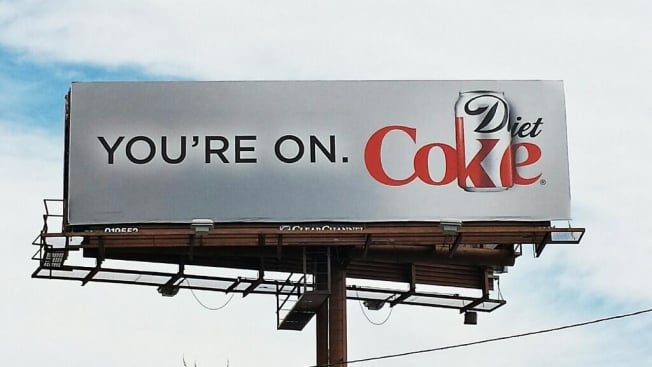
In 2008, a study published by the American Heart Association concluded that diet soda contributed to an increased incidence of metabolic syndrome. More than 9,500 participants between the ages of 45 and 64 were followed for 9.5 years. At the conclusion of the study, those that consumed diet soda had a 34 percent increased risk of metabolic syndrome compared to those who did not consume soda.
Although the study concluded by stating more research was necessary to determine the reasons behind this outcome, the media stormed news outlets with stories and headlines that made the public question the reputation of an assumed “guiltless pleasure.” Since then, millions have wondered if their diet soda addiction is one more hindrance in the plight of weight management.
Study shows diet soda doesn’t increase diabetes risk. . .
In April 2011, however, The American Journal of Clinical Nutrition analyzed data of more than 40,000 men, who were followed for ten years, recounting their medical status, dietary habits and soda consumption each week. As researchers combed through the data, they found that 7 percent of the participants were diagnosed with diabetes during the study. The men that consumed sugar-sweetened sodas were 16 percent more likely to develop diabetes and there was an increased risk of diabetes among men who consumed at least one diet soda per day as well.
In an effort to determine, why diet drinks seemed to be associated with an increased risk of diabetes, the researchers went a step further and accounted for the weight, blood pressure and cholesterol of each of the men. When these factors were considered, diet drinks were no longer related to diabetes risk. Experts say this evidence suggests that diet soda drinkers are classically overweight and/or at-risk for diabetes – skewing the perception that diet drinks are linked to risk factors of diabetes.
. . .or maybe it does? Studies show link between diet soda, diabetes and weight gain.
On the other hand, in June 2011, researchers in Texas presented data at the American Diabetes Association’s Scientific Sessions, suggesting that diet sodas do contribute to weight gain and an increased risk of diabetes. This study examined data of more than 400 participants in the San Antonio Longitudinal Study of Aging and found that over a 9.5 year period, diet soda drinkers had a 70 percent increase in the size of their waistlines. When compared to non-diet soda drinkers, subjects that consumed two or more diet sodas per day, had a 500 percent greater growth in the size of their waistline. Researchers accounted for weight, diabetes status, leisure time activities, physical activity level and age. Again, researchers were uncertain as to why diet soda was so heavily linked to these adverse conditions.
To answer that question, researchers at the School of Medicine at The University of Texas Health Science Center San Antonio, observed the effects of a high-fat diet on mice, when aspartame was included in their meals. The mice were divided into two groups, one with aspartame added to their high-fat meals and the other without aspartame. At the close of three months, the mice in the aspartame group had elevated fasting glucose levels, which is indicative of pre-diabetes and diabetes.
The real reason diet soda makes you fat
As with any processed food or beverage, the link between diet soda and weight gain is due to inflammation, a word that has become synonymous with weight gain and chronic disease.
In a study published in the September 2012 issue of The Obesity Review, researchers set out to determine the impact of fructose, sugar alcohols and artificial sweeteners on the gut bacteria of the stomach and intestines. The results gave further clout to the theory that inflammation caused by the high-fat, high-processed diets of most Americans is the leading cause of weight gain, obesity and chronic disease.
And all those calorie-free, seemingly guilt-free, processed diet sodas are a contributing factor. When your gut processes food, byproducts known as short-chain fatty acids are produced. When you consume high levels of sweetened foods – naturallyor articificially sweetened – the bacteria becomes more efficient at processing these types of molecules and churns out more and more and more short chain fatty acids than necessary. According to the lead researcher of this tudy, high levels of short-chain fatty acids decrease satiety signals and promote inflammation in the lining of the gut. So, not only does your body fail to tell you when you are full, but now you are also at increased risk for leaky gut syndrome.
Leaky gut syndrome occurs when the lining of the stomach and or intestines becomes damaged, allowing toxins and harmful bacteria to leak into the bloodstream and throughout the body leading to inflammation and increased risk of disease.
Diet soda isn’t solely responsible for these adverse effects; the same is true of traditional soda, processed foods and people who have food sensitivities they may not be aware of. Each have been linked to leaky gut syndrome, inflammation and chronic diseases, such as coronary artery disease, type 2 diabetes and stroke.
If you are looking for a healthy, palette-pleasing beverages, try sprucing up ice-cold water with citrus fruits, cucumber or mint. Stick with natural and low or no-calorie beverages, like green tea or black coffee to avoid further harm to your body.
